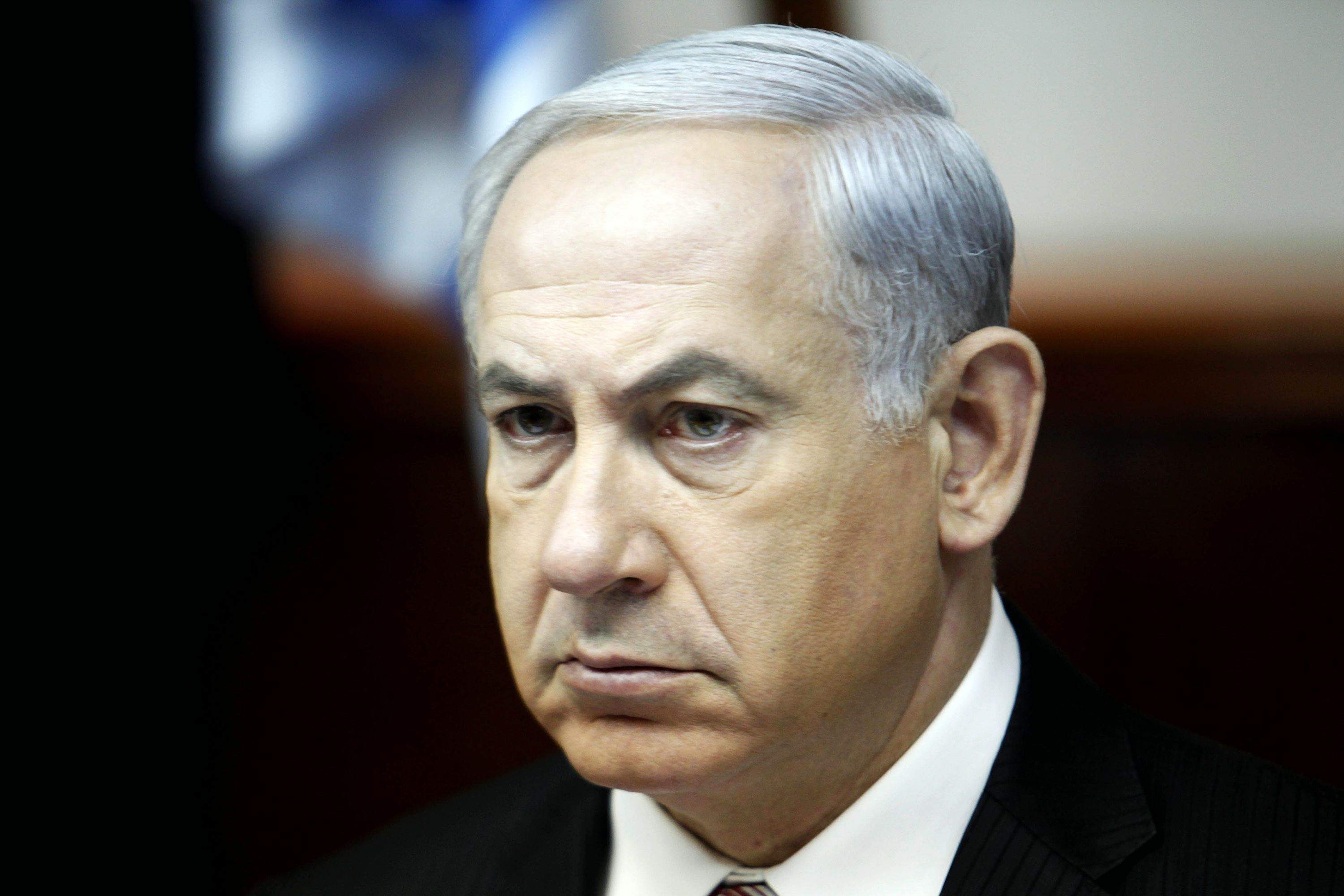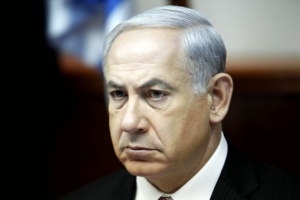In Western capitals, the agreement is presented as a way to distance Iran from developing nuclear weapons, as a victory of diplomacy over force, as a proof of the possibility to resolve the crisis over Iran's nuclear program by political means. In Jerusalem, an agreement was seen as the Iranian trap, gambit, providing little tactical short-term concessions for the sake of gaining nuclear weapons in the long term. Iranian conspiracy that threatens the state of Israel. While the world applauded the American diplomacy, Israel kept a mistrustful silence or muttered grimly.
Not only the government reacted in such a way, but almost all the Zionist parties. Livni and Herzog (opposition leaders), and Yair Lapid echoed Netanyahu, claiming that there is no disagreements between the coalition and the opposition when it comes to Iran. World is gullible, its leaders - inexperienced politicians that naively underestimate Iranian slyness. Only Israel and Israeli leaders soberly assess reality. United States and its partners are mistaken as to whether the agreement will make the world a safer place, and only the wise and realistic Israel understands that the world is really going to get worse.
This is not the place to consider the details of the long and complex agreement. The agreement is based on the balance of three basic elements: the prohibitions and restrictions, monitoring mechanism and the lifting of sanctions. The result is a document that is not completely clear or perfect. At the same time, this is an acceptable pragmatic compromise, somehow even a good one. This compromise is based on the principles and the "red lines" of both sides, despite of the fact that at the beginning of the negotiations, the compromise seemed impossible.
The agreement is based on a compromise between the two major principles, among which there is a strong tension. On the one hand, the world has forced Iran to agree with a significant restriction of work on its nuclear program. This requirement could eliminate loopholes in the Treaty on the Non-Proliferation of Nuclear Weapons (NPT), which Iran used to create nuclear weapons program. Although, Iran has long been able to become a nuclear power from a technical point of view, it is understood that they will have to pay too much of a price. Setting a limit on its nuclear program, the world has made it clear that a sovereign state such as Iran does not have the right to interpret the vague NPT points. After all, Iran needs the help of the international community to decide what is possible and what is impossible within the framework of the nuclear program. The agreement establishes significant restrictions on working in this field for 15 years. The details can be argued, but the contract, without a doubt, is a very big diplomatic success.
On the other hand, the agreement fixed the unique nuclear status of Iran, much different from that of non-nuclear states signed the NPT. Yes, for other 15-20 years Iran will not be considered in the full sense the country, standing on the threshold of developing nuclear weapons, but they will keep a special status. Moreover, in the future, Iran will be able to turn their special status in the position of the state, ready to build nuclear weapons. For Iranians it is a great political and symbolic achievement.
In short, the signed agreement is a very difficult. From the standpoint of Israel's interests, it has both good and bad sides. Political wisdom demands that Israel, in close cooperation with the United States (especially in the field of intelligence), should create tools neutralizing problematic aspects of the agreement. If Israeli leaders can do it, Israel will be able to come to terms with this transaction.
It should be noted that this agreement has another, deeper dimension that is beneficial to Israel. This agreement is good in that it can completely change the Israeli priorities and improve the situation in the country. After over a generation’s lifetime the government threated the people with Iranian hazard and manipulated the citizens, finally there is a hope that it may come to end. The Iranian problem does not come from the agenda, but will be threaten professionally and quietly, as befits.
The disappearance of the "Iranian threat" in able to have a major positive influence on Israeli policy, in the order of priorities in society and the quality of life in general. If the agreement is going to work, Israel will have to deal with truly important issues.
original by Avner Cohen, Haaretz.co.il
Not only the government reacted in such a way, but almost all the Zionist parties. Livni and Herzog (opposition leaders), and Yair Lapid echoed Netanyahu, claiming that there is no disagreements between the coalition and the opposition when it comes to Iran. World is gullible, its leaders - inexperienced politicians that naively underestimate Iranian slyness. Only Israel and Israeli leaders soberly assess reality. United States and its partners are mistaken as to whether the agreement will make the world a safer place, and only the wise and realistic Israel understands that the world is really going to get worse.
This is not the place to consider the details of the long and complex agreement. The agreement is based on the balance of three basic elements: the prohibitions and restrictions, monitoring mechanism and the lifting of sanctions. The result is a document that is not completely clear or perfect. At the same time, this is an acceptable pragmatic compromise, somehow even a good one. This compromise is based on the principles and the "red lines" of both sides, despite of the fact that at the beginning of the negotiations, the compromise seemed impossible.
The agreement is based on a compromise between the two major principles, among which there is a strong tension. On the one hand, the world has forced Iran to agree with a significant restriction of work on its nuclear program. This requirement could eliminate loopholes in the Treaty on the Non-Proliferation of Nuclear Weapons (NPT), which Iran used to create nuclear weapons program. Although, Iran has long been able to become a nuclear power from a technical point of view, it is understood that they will have to pay too much of a price. Setting a limit on its nuclear program, the world has made it clear that a sovereign state such as Iran does not have the right to interpret the vague NPT points. After all, Iran needs the help of the international community to decide what is possible and what is impossible within the framework of the nuclear program. The agreement establishes significant restrictions on working in this field for 15 years. The details can be argued, but the contract, without a doubt, is a very big diplomatic success.
On the other hand, the agreement fixed the unique nuclear status of Iran, much different from that of non-nuclear states signed the NPT. Yes, for other 15-20 years Iran will not be considered in the full sense the country, standing on the threshold of developing nuclear weapons, but they will keep a special status. Moreover, in the future, Iran will be able to turn their special status in the position of the state, ready to build nuclear weapons. For Iranians it is a great political and symbolic achievement.
In short, the signed agreement is a very difficult. From the standpoint of Israel's interests, it has both good and bad sides. Political wisdom demands that Israel, in close cooperation with the United States (especially in the field of intelligence), should create tools neutralizing problematic aspects of the agreement. If Israeli leaders can do it, Israel will be able to come to terms with this transaction.
It should be noted that this agreement has another, deeper dimension that is beneficial to Israel. This agreement is good in that it can completely change the Israeli priorities and improve the situation in the country. After over a generation’s lifetime the government threated the people with Iranian hazard and manipulated the citizens, finally there is a hope that it may come to end. The Iranian problem does not come from the agenda, but will be threaten professionally and quietly, as befits.
The disappearance of the "Iranian threat" in able to have a major positive influence on Israeli policy, in the order of priorities in society and the quality of life in general. If the agreement is going to work, Israel will have to deal with truly important issues.
original by Avner Cohen, Haaretz.co.il






